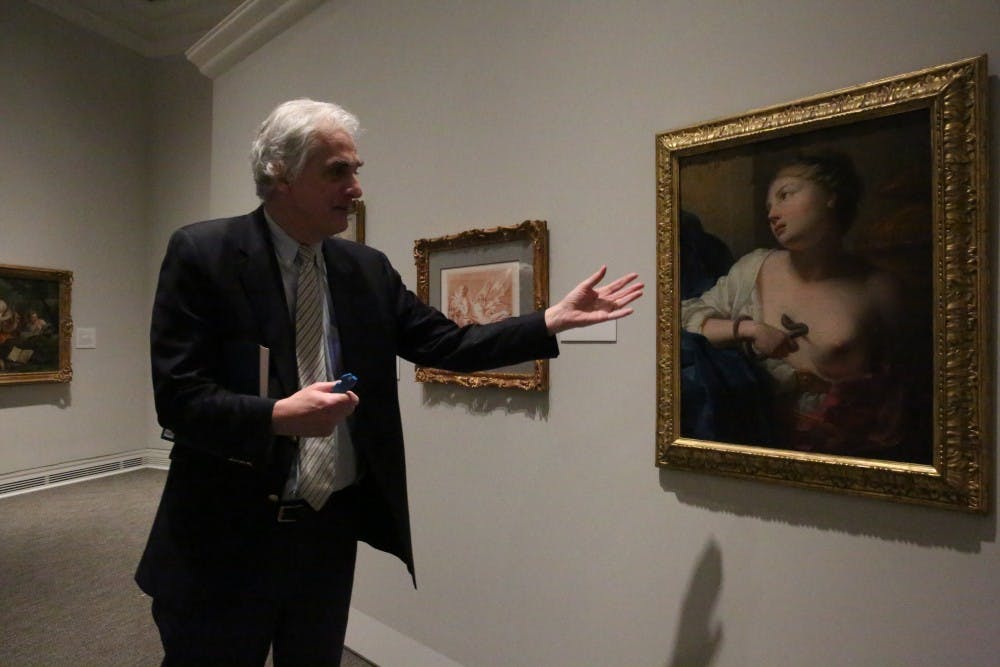In the current political climate of gender issues and cultural reflection across a diverse array of ideas, the Ackland Art Museum’s newest exhibition, "Becoming a Woman in the Age of Enlightenment: French Art from The Horvitz Collection," is uncommonly timely.
"Becoming a Woman" explores the so-called “Woman's Question” that was pivotal to some of the most pressing debates of the French Enlightenment during the 18th century.
It is a thematic exhibit with 130 pieces of artwork ranging from drawings, to paintings, to sculptures, to prints — with only 10 of these pieces created by women. It conveys various depictions of the societal role of women spanning across 150 years of French art and will be on display from Jan. 26 to April 8.
The title of the exhibit carries a double meaning. It deals with the socialization of women in the period, how they were trained to be women through childhood, and the roles that they were encouraged to adapt, as well as what sort of behavior was considered appropriate for them.
“Certainly, it is an exhibition that speaks to how old master art speaks to the present. Not only in terms of the exquisite quality of the work, but also the issues,” said Peter Nisbet, the deputy director for curatorial affairs at the Ackland.
With naturalism, romanticism, rococo, the French Revolution and more, Nisbet described 18th-century and 19th-century France as “an enormously complicated period in ways that could be said to be roots of our modern world.”
With this, the viewer is left to decide whether "Becoming a Woman" is a historical exhibit presenting another world of thinking, or if it could be seen as evidence of the fact that similar issues remain in question today.
The exhibit is divided into nine sections, each of which embodies a different aspect of the perception of women. They include "The Fair Sex: Conceptions and Paradigms of Woman," "Women In Training," "What’s Love Got To Do With It?," "Married With Children," "Dressing the Part," "Aging Gracefully," "Work: Leaving it to the Professionals," "Pleasurable Pursuits" and "Private Pleasures."
“I’m actually really partial to the fashion section. I love fashion and textiles and I think it’s so rich and beautiful. Some of the pieces are just stunning,” said Audrey Shore, the communications assistant at the Ackland.



